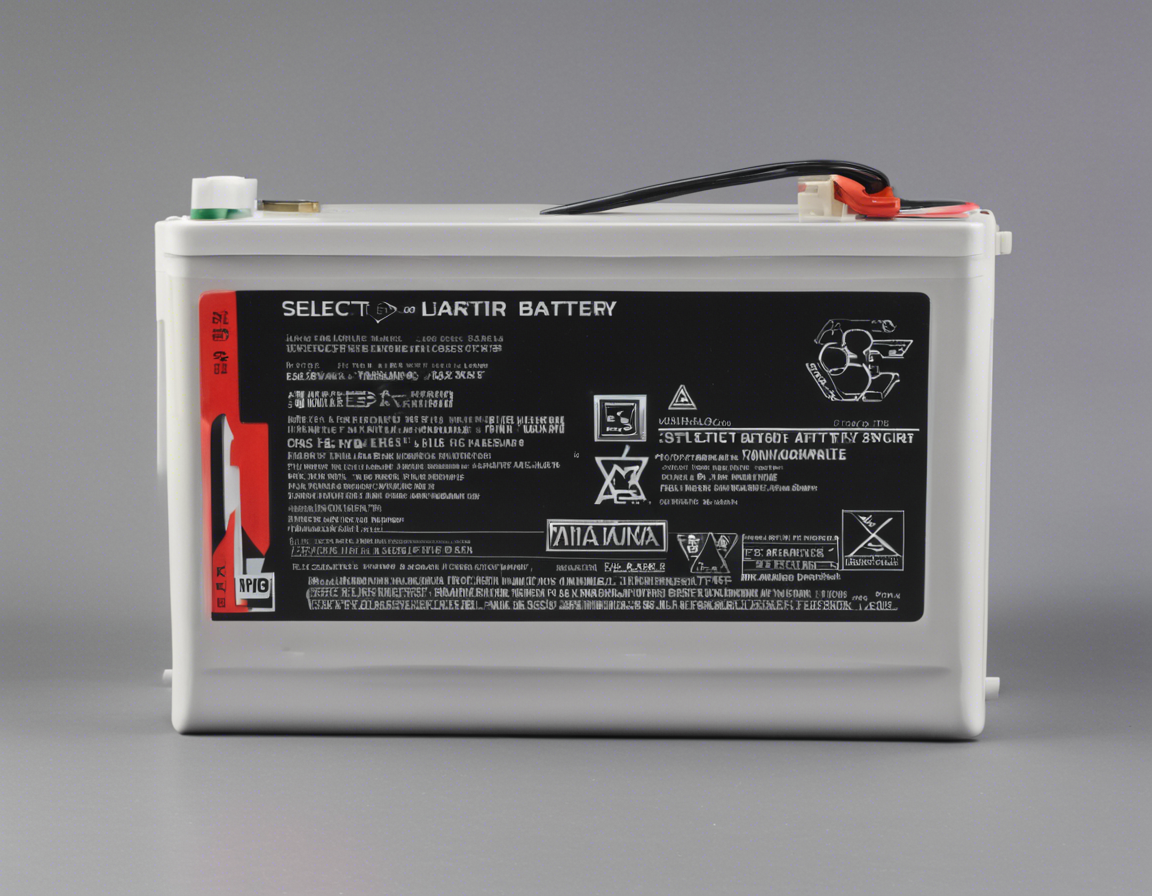Powering our everyday gadgets and devices, batteries have become an indispensable part of our lives. From smartphones to laptops, cameras to remote co
Powering our everyday gadgets and devices, batteries have become an indispensable part of our lives. From smartphones to laptops, cameras to remote controls, selecting the right battery is crucial to ensure optimal performance and longevity for our devices. With a multitude of options available in the market, it can be overwhelming to decide which battery is best suited for your specific needs. In this comprehensive guide, we will delve into the world of batteries, exploring the different types, factors to consider when choosing a battery, and tips on how to prolong battery life.
Types of Batteries
1. Alkaline Batteries
Alkaline batteries are one of the most common types found in household devices. They are affordable and readily available, making them a popular choice for low-drain devices like remote controls and clocks.
2. Lithium-Ion Batteries
Lithium-ion batteries are rechargeable batteries commonly used in smartphones, laptops, and other portable electronic devices. They offer high energy density and are lightweight, making them ideal for devices that require a reliable power source.
3. Nickel Metal Hydride (NiMH) Batteries
NiMH batteries are another type of rechargeable battery that is commonly used in devices like digital cameras and handheld gaming consoles. They have a higher capacity compared to alkaline batteries and can be recharged multiple times.
4. Lithium Polymer Batteries
Lithium polymer batteries are a variation of lithium-ion batteries that come in a flexible pouch format. They are commonly used in smartphones, tablets, and wearable devices due to their slim form factor and high energy density.
Factors to Consider When Choosing a Battery
1. Capacity
The capacity of a battery is measured in milliampere-hours (mAh) and indicates how much charge the battery can store. Higher capacity batteries typically last longer between charges, making them ideal for high-drain devices like cameras and gaming consoles.
2. Voltage
Voltage is another important factor to consider when choosing a battery. Different devices require different voltage levels to operate optimally, so it is essential to select a battery that matches the voltage requirements of your device.
3. Rechargeable vs. Non-Rechargeable
Deciding between rechargeable and non-rechargeable batteries depends on your usage habits and environmental concerns. Rechargeable batteries are more cost-effective and eco-friendly in the long run, while non-rechargeable batteries are convenient for devices that are not frequently used.
4. Temperature Range
Some batteries perform better in extreme temperatures than others. If you plan to use your device in hot or cold environments, choose a battery that can withstand the temperature range without compromising performance.
Tips for Prolonging Battery Life
1. Avoid Overcharging
Overcharging a battery can reduce its lifespan. Be mindful of leaving your device plugged in for extended periods after it has reached full charge.
2. Store Batteries Properly
Storing batteries in a cool, dry place at room temperature can help preserve their charge. Avoid exposing batteries to extreme temperatures or moisture.
3. Optimize Device Settings
Adjusting your device’s settings such as brightness, background apps, and connectivity options can help conserve battery life and prolong usage between charges.
4. Use Official Chargers
Using official chargers recommended by the device manufacturer can prevent overcharging and ensure compatibility, ultimately extending the life of your battery.
5. Avoid Deep Discharges
Frequently discharging a battery to very low levels can shorten its lifespan. Try to recharge your device before it reaches critically low levels to maintain battery health.
Frequently Asked Questions (FAQs)
1. Can I use a higher capacity battery in my device?
While it may be tempting to use a higher capacity battery for longer usage, it is essential to ensure that the voltage and physical dimensions of the battery match your device’s requirements. Using an incompatible battery can damage your device and pose safety risks.
2. How do I know when it’s time to replace my battery?
If you notice a significant decrease in battery life or if your device struggles to hold a charge, it may be time to replace the battery. Some devices also have built-in diagnostics that indicate when the battery health is deteriorating.
3. Are aftermarket batteries safe to use in my device?
While aftermarket batteries may be cheaper, they may not undergo the same quality control standards as original manufacturer batteries. Using unreliable batteries can pose safety risks and potentially damage your device.
4. How can I dispose of old batteries safely?
To dispose of batteries safely, look for recycling programs in your area that accept old batteries. Do not throw batteries in the regular trash as they can leak harmful chemicals into the environment.
5. Why does my battery drain quickly even with minimal usage?
Rapid battery drain can be attributed to background apps, poor network coverage, or hardware issues in your device. Try closing unnecessary apps, switching to airplane mode in low-signal areas, or seeking technical assistance to diagnose the problem.
In conclusion, selecting the right battery for your device involves considering factors like capacity, voltage, and rechargeability to ensure optimal performance and longevity. By following tips to prolong battery life and being mindful of proper usage and storage practices, you can maximize the efficiency of your devices’ power source. Remember to prioritize safety and quality when choosing batteries to safeguard your devices and enhance your user experience.

COMMENTS